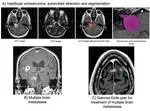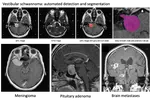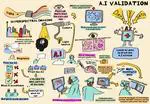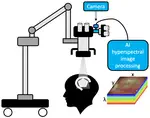Posts
WiM-WILL is a digital platform that provides MICCAI members to share their career pathways to the outside world in parallel to MICCAI conference. Muhammad Asad (interviewer) and Navodini Wijethilake (interviewee) from our lab group participated in this competition this year and secured the second place. Their interview was focused on overcoming challenges in research as a student. The link to the complete interview is available below and on youtube.
We are working to develop new technologies that combine a new type of camera system, referred to as hyperspectral, with Artificial Intelligence (AI) systems to reveal to neurosurgeons information that is otherwise not visible to the naked eye during surgery. Two studies are currently bringing this “hyperspectral” technology to operating theatres. The NeuroHSI study uses a hyperspectral camera attached to an external scope to show surgeons critical information on tissue blood flow and distinguishes vulnerable structures which need to be protected. The NeuroPPEye study is developing this technology adapted for surgical microscopes, to guide tumour surgery.
Post overview:
- Focus: Translational research in biomedical optics for hyperspectral imaging based quantitative fluorescence linked with an in-patient neurosurgery clinical study
- Line manager: Tom Vercauteren
- Clinical collaborator: King’s College Hospital
- Industry collaborator: Hypervision Surgical
- Salary: Grade 6, £38,826 - £45,649 per annum, including London Weighting Allowance

![PhD opportunity [February 2024 start] on "Accurate automated quantification of spine evolution — it’s about time!"](/post/2022-11-13-spinequantification/featured_hu_29866223f35c9f14.webp)
![PhD opportunity [February 2024 start] on "Physically-informed learning-based beamforming for multi-transducer ultrasound imaging"](/post/2021-11-03-usbeamforming/featured_hu_1dcd108d7f697969.webp)






